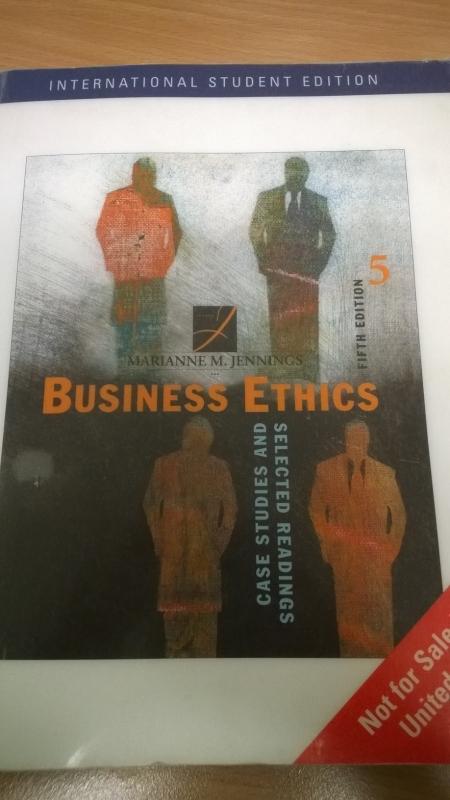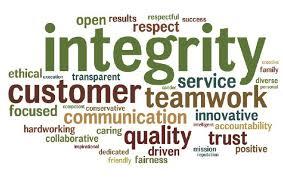Submitted by literature on


The author has different take on the values represented in our society. In the book, the author has written about a lot of theories. According to the Divine Command Theory, the resolution of the dilemmas is based upon religious beliefs. Ethical dilemmas are resolved according to tenets of faith, such as the Ten Commandments for the Jewish and Christian faiths. Central to this theory is that decisions in ethical dilemmas are made on the basis of guidance from a divine being.
The next theory is the Ethical Egoism Theory, which states that we all act in our own self-interest and that all of us should limit our judgment to our own ethical egos and not interfere with the exercise of ethical egoism by others. Philosophers Jeremy Bentham and John Stuart Mill of the Utilitarian Theory moved to the opposite end of ethical egoism and argued that resolution of ethical dilemmas requires a balancing effort in which we minimize the harms that result from a decision even as we maximize the benefits.
The Categorical Imperative and Immanuel Kant means that you cannot use others in a way that gives you a one-sided benefit. In Kant’s “One ought only to act such that the principle of one’s act could become a universal law of human action in a world in which one would hope to live”.
The Contractarians and Justice or sometimes known as the theory of justice and or as the social contract. John Locke and John Rawls preferred just putting the rules into place via a social contract that is created under circumstances in which we reflect and imagine what it would be like if we had no rules or law at all.
The Rights theory is also known as an entitlement theory given by the Robert Nozick is the key modern-day philosopher on this theory and has two elements:
Everyone has a set of rights.
It’s up to the governments to protect those rights.
The Moral relativists believe in time-and-place ethics. According to this, the relativists do not believe in absolute rules, virtue ethics, or even the social contract. It mainly center on the pressure of the moment and whether the pressure justifies the action taken.
Aristotle and Plato (Virtue Ethics) taught that solving ethical dilemmas require training, that individuals solve ethical dilemmas when they develop and nurture a set of virtues. Aristotle taught the importance of cultivating virtue in his students and then having them solve ethical dilemmas using those virtues once they had become an integral part of their being through their virtue training.
Such values can be applied in enterprise or organization. According Laura Nash, of the Harvard Divinity School, has one of the more detailed decision-making, with 12 questions to be asked in evaluating an ethical dilemma.
Have you defined the problem accurately?
The rephrasing of the question helps us think in terms of honoring our values rather than rationalizing to justify taking property from another.
How would you define the problem if you stood on the other side of the fence?
It forces us to look at our standards in a more universal way.
How did this situation occur in the first place?
We use it to avoid being placed in the same predicament again.
To whom and what do you give your loyalties as a person and as a member of the corporation?
Saying something means you are loyal to your company, but you have sacrificed your loyalty to your manager.
What is your intention in making this decision?
Often we offer a different public reason for what we are doing as a means of avoiding examination of the issue.
How does this intention compare with the likely results?
The true picture of the result can reveal one’s reality.
Whom could your decision or action injure?
Under this, think of not only the direct harm that can result from a poor ethical choice, but all the ripple effects as well. Ethical missteps cut a wide swath of harm, and this question asks us to consider all that harm before we make a final decision.
Can you engage the affected parties in a discussion of the problem before you can make your decision?
The fact that you could not discuss what you are about to do with a person who has been very close to you and who you would betray indicates that your secret decision and action crosses an ethical line.
Are you confident that your position will be as valid over a long period of time as it seems now?
This question asks you to think about the small decision over the time frame of your life.
Could you disclose without qualm your decision or action to your boss, your CEO, the board of directors, your family, or society as a whole?
It asks you to evaluate your conduct as if it were being reviewed by those who run your company.
What is the symbolic potential of your action if understood? If misunderstanding?
An application of this question is in conflict of interest questions.
Under what conditions would you allow exceptions to your stand?
You would be comfortable with that variance because your expectations relate to the well-being of others.
These Nash questions help us gain perspective and various views on the issue before us.
In the words of Titiksha Jain.


